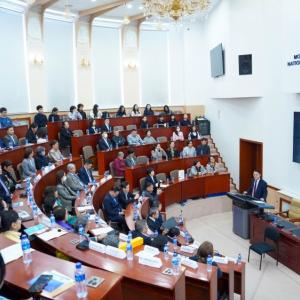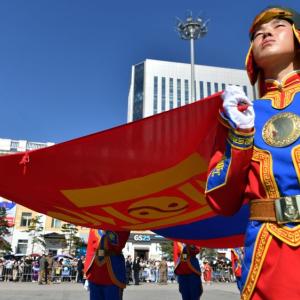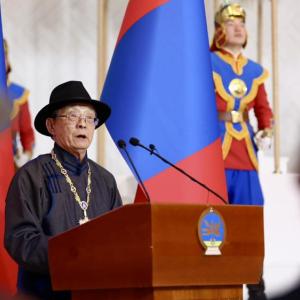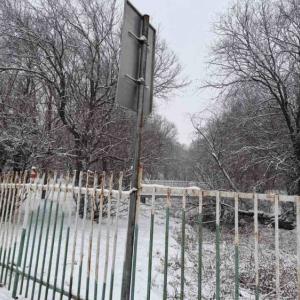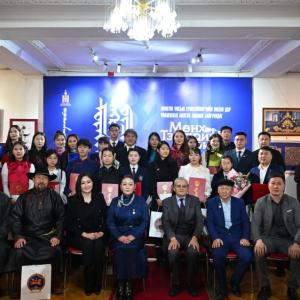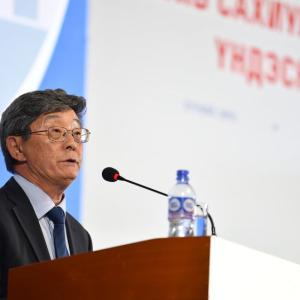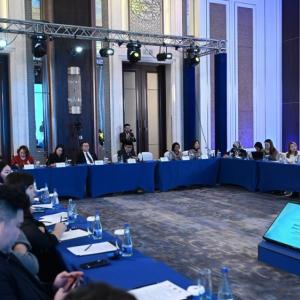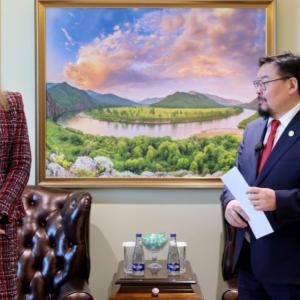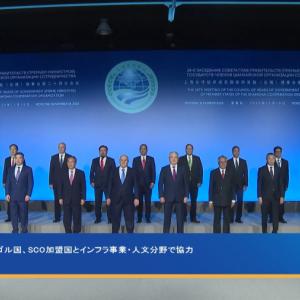Children in Zavkhan receive cash to deal with climate shocks
Society
Ulaanbaatar/MONTSAME/. Mongolia is one of many countries increasingly affected by climate change. It is already having a profound impact on Mongolia’s weather conditions, increasing frequency and magnitude of extreme weather events or shocks such as severe winter with excessive snow fall, intensification of drought and aridity, rapid melting of permafrost and glaciers. This fundamentally undermines the well-being of children in the countryside.
UNICEF Mongolia in close collaboration with the Ministry of Labour and Social Protection has designed a pilot programme worth USD$ 490 000 to provide cash assistance for all children living in the remote rural areas prone to extreme weather shocks. The testing of the pilot has started this winter in 4 soums of Zavkhan province in western part of the country. These soums had the most snowfall this winter to date. As part of the pilot, all children aged 0-5 living in these villages received cash worth of MNT40,000 (approximately US$15) through the existing national system for delivery of the Government’s Child Money Programme.
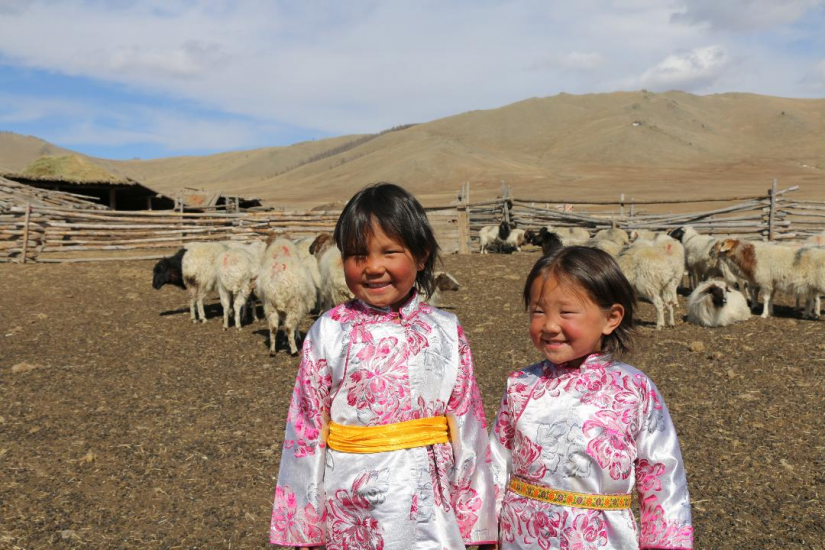
The families used the money to purchase much needed warm clothes and felt boots for children as well as medicines for cold, flu vaccines and vitamins. They said the cash assistance was timely and useful enabling them to take early action for their children in preparation for the harsh winter.
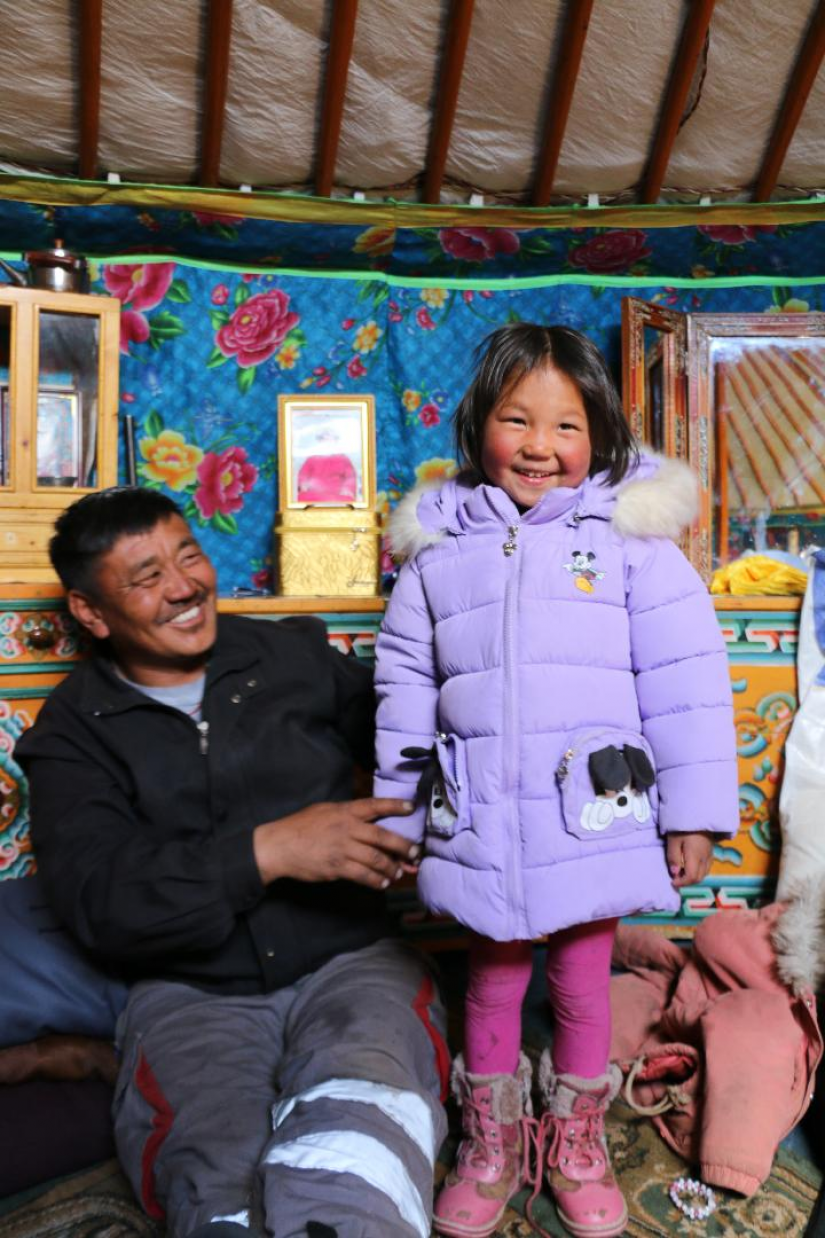
The second phase of the pilot has covered all 23 rural soums
except Uliastai, the provincial center. The pilot reached 6747 children aged
0-5 and all these children received MNT 20 000 for three months, February-April,
2020 through the same national system for delivering government child money
program. The local government, community/bagh leaders, local banks worked
collaboratively to distribute appropriate messages and information to herder
families on piloting of child cash grant to respond natural shocks and cope
with the dzud.
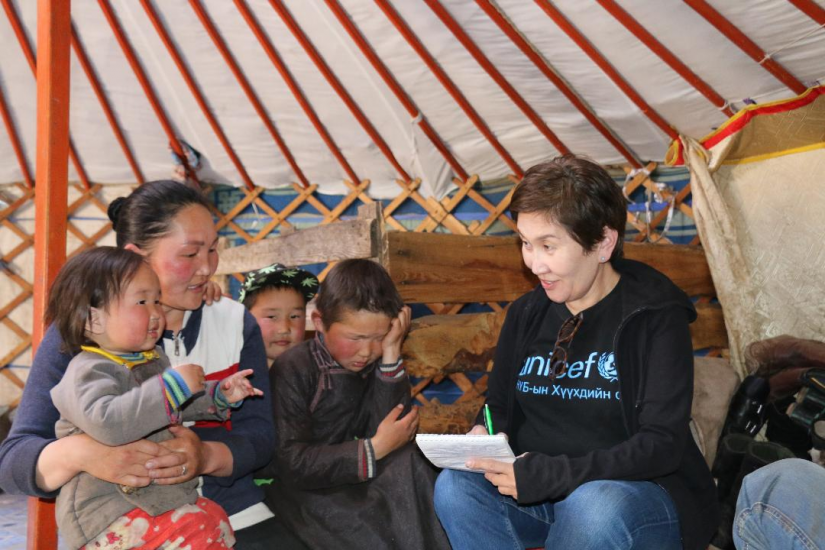
As Zavkhan is coping with aftermath of dzud and COVID-19 pandemic,
this child cash grant has become the only source of income for many herders. According
to the locals, the prices of goods have gone up, all schools and kindergartens
have shut down, many families have lost livestock this winter and prices for
cashmere and wool have gone down. So the families were grateful to receive some
cash assistance to help them cope during these difficult times.
“Such a pilot that uses the government’s existing social assistance delivery system, has never been designed and implemented before. We will continue this programme for 2 more years aiming for full integration and adoption by the government thereafter. With this pilot, UNICEF, other development partners and UN agencies look to support the Government in making the national social protection system responsive to climate related shocks” says Mrs Zoya Baduan, Local Governance officer at UNICEF Mongolia.
The Governor of Zavkhan Mr D.Batsaikhan said that “during
the dzud we usually prioritize three issues: livestock, herders’ health and the
last one is children. Herders and their livestock receive government assistance
first, and children are usually left behind. This pilot programme enables us to
better protect children during any climate related shocks. I believe that today’s
pilot will be a national programme soon. Zavkhan will be ready to share its experience
nationwide.”
The funding for the pilot programme comes from UN SDG Fund.
Source: UNICEF Mongolia
 Ulaanbaatar
Ulaanbaatar




















